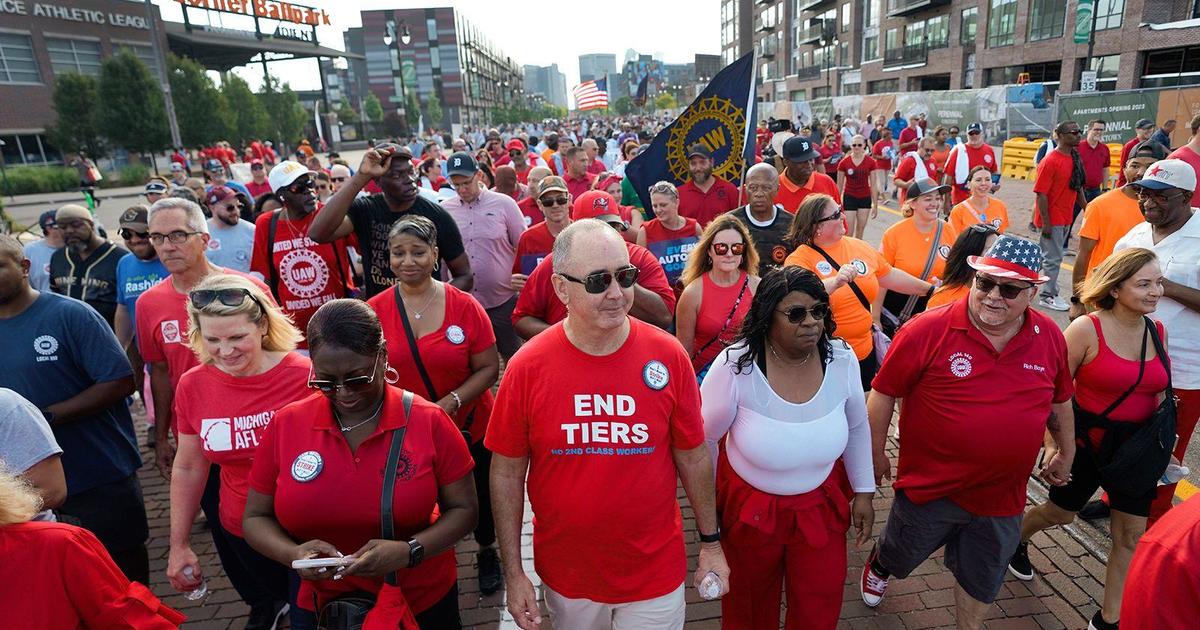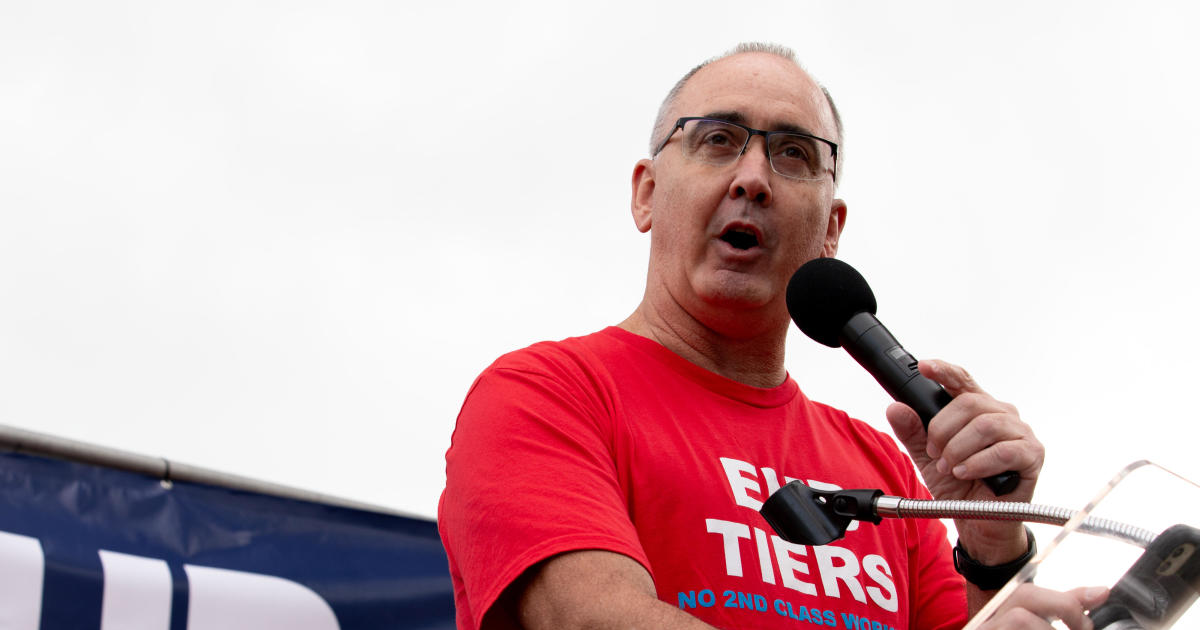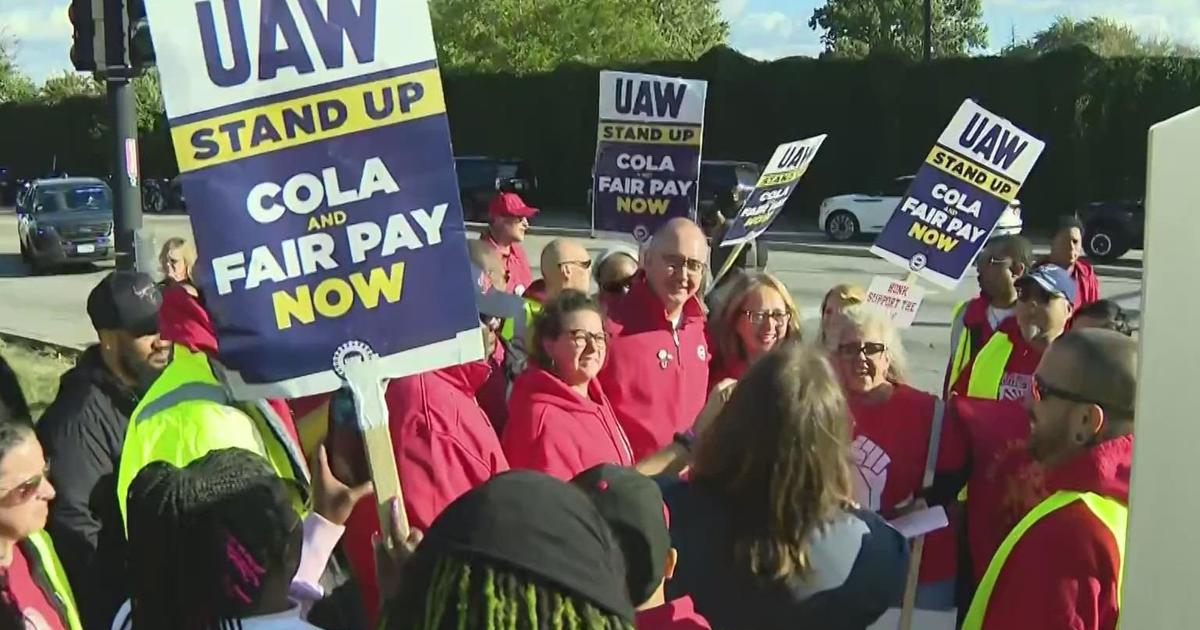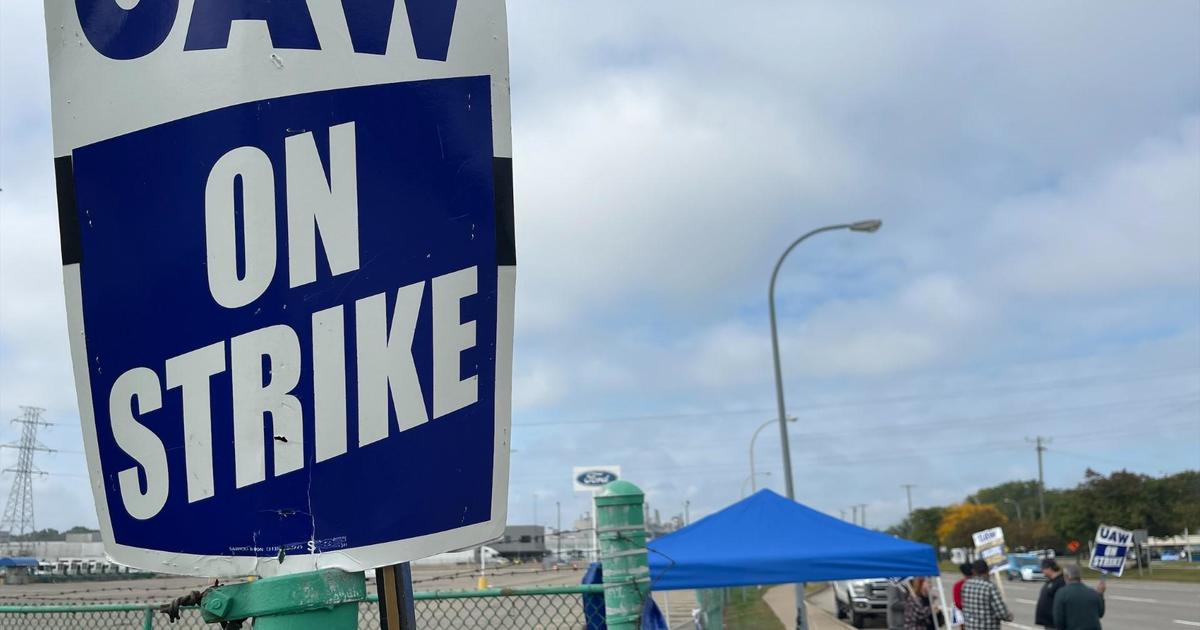As autoworkers' strike hits 19th day, U.S. Rep. Mike Quigley calls for resolution
WASHINGTON (CBS) -- The United Auto Workers strike was in its 19th day Tuesday – as the two sides continue to negotiate, but with significant differences remaining.
On Friday, approximately 4,600 Ford workers at the Chicago Assembly Plant at 126th Street and Torrence Avenue on the Southeast Side joined the United Auto Workers on strike against Detroit's Big Three carmakers, expanding a strike that has already shuttered assembly plants, parts distribution centers and other facilities across more than 20 states.
UAW President Shawn Fain said Friday that the Ford plant in Chicago, and the General Motors Lansing Delta Township assembly plant in Michigan were joining the strike on Friday, adding about 7,000 more workers to the strike against Ford, GM, and Stellantis – the parent company of Chrysler, Dodge, Jeep and Ram, along with a number of foreign brands.
The Ford factory in Chicago makes Ford Explorers and Explorer Police Interceptors, as well as the Lincoln Aviator SUV. The GM factory in Lansing makes the Chevy Traverse and Buick Enclave and other SUVs. A metal parts stamping plant in Lansing will remain open while the assembly plant is on strike.
As a downstream effect, Ford announced layoffs at a stamping plant at south suburban Chicago Heights. Ford said the strike at the Chicago Assembly Plant had directly impacted operations at the Chicago Heights stamping plant – and an engine plant in Lima, Ohio.
Thus, 330 employees between the plants were asked not to report to work – beginning Saturday at the Chicago Heights facility, and Monday at the facility in Ohio.
CBS 2 Streaming Anchor Brad Edwards on Tuesday asked U.S. Rep. Mike Quigley (D-Illinois) if there was any action Congress could take before the strike becomes a monthslong affair. Quigley urged both sides to reach a resolution.
"Part of this process is letting those negotiations take place and not trying to put your finger on one side of the scale or the other. I get why the workers are there. They've got about a 6 percent increase in pay in the last 10 years, while the CEOs are more like 40 percent. Let's equal that out a little bit," Quigley said. "But you're absolutely right – this is critical to our economy. I see estimates that if the entire industry walks out in the United States, in a couple weeks, it could cost hundreds of millions. So let's hope that that process works its normal course, and we come to a reasonable compromise and put people back to work."
The UAW launched its "stand-up strike" — a rhetorical nod to the "sit-down" strike by GM workers in Flint, Michigan, in the 1930s — on Sept. 15 when nearly 13,000 autoworkers halted work at Big Three assembly plants Michigan, Missouri and Ohio. A week later, another 5,600 workers at 38 GM and Stellantis-owned parts distribution centers in 20 states walked off the job, including two sites in Illinois — a GM facility in Bolingbrook and a Stellantis facility in Naperville.
The UAW's demands include a 36% pay increase across a four-year contract, annual cost-of-living adjustments, pension benefits for all employees, greater job security, restrictions on the use of temporary workers and a four-day work week. Along with a wage hike, the union also wants the automakers to eliminate a two-tiered wage system adopted at the companies after the 2008 financial crisis.
For their part, the automakers say they have made reasonable counteroffers, while arguing that the UAW's wage and other demands would make it hard to compete with other car manufacturers.
for more features.




